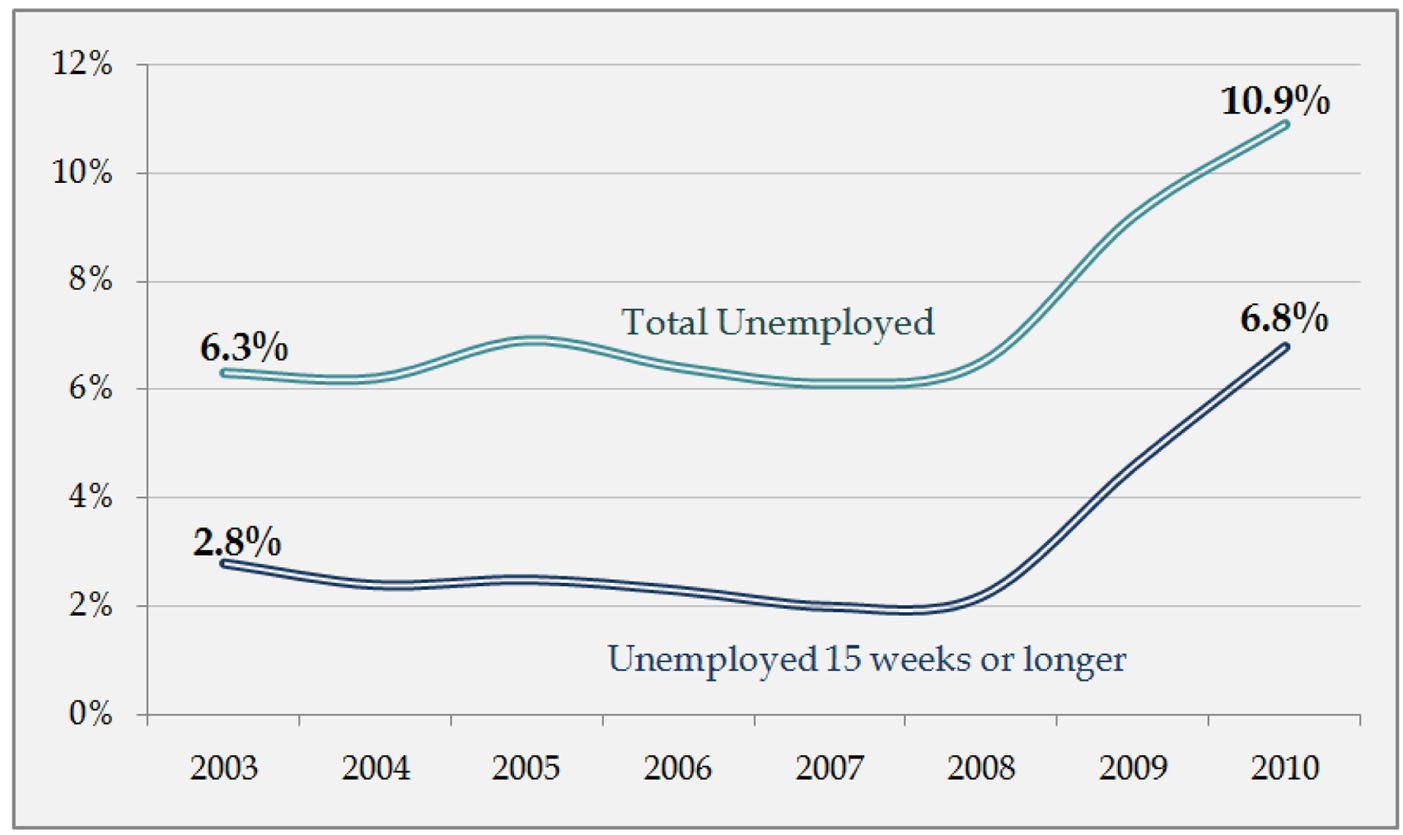Extended Unemployment Impacts Thousands of Mississippi Families
March 14th, 2011
Many working Mississippians have been impacted by job loss or reduced work hours throughout the economic downturn. As we enter 2011, Mississippi’s economy continues to slowly recover; however, the portion of Mississippians unemployed for an extended period of time remains higher than before the recession.
In 2010, 6.8 percent of Mississippi’s labor force was unemployed for 15 weeks or more. In 2008, the portion of long-term unemployed dipped to 2.0 percent and then rose steadily in 2009 and 2010 as more Mississippians struggled to find employment. Last year, the number of persons unemployed for 15 weeks or more surpassed 89,000.
Click to enlarge
Mississippians Unemployed More Than 15 Weeks Rises in Downturn
The current high rates of long-term unemployment challenge training providers to support unemployed adults so they gain skills that open pathways to jobs with higher wages. Recently, the Mississippi Department of Employment Security was awarded an additional $1.6 million in on-the-job training funds for employers to connect unemployed Mississippians with employment and training at the same time. A portion of these funds support employers who hire and train workers who have been unemployed 19 weeks or longer.
Beyond on-the-job training, it remains important that training at Mississippi’s community colleges and universities remain affordable for all adults that wish to gain skills and transition to higher-wage employment opportunities. Maintaining affordability within postsecondary education remains one of the most important elements of solving the state’s long-term struggles with poverty alleviation and requires a balanced approach to building a state budget that includes raising revenue instead of taking a cuts-only approach.
Source:
Bureau of Labor Statistics. Alternative Measures of Labor Underutilization for States.
Author:
Sarah Welker, Policy Analyst






